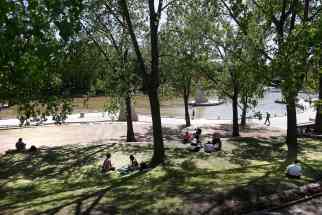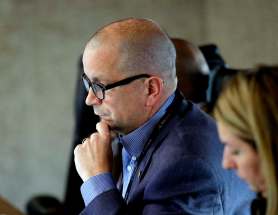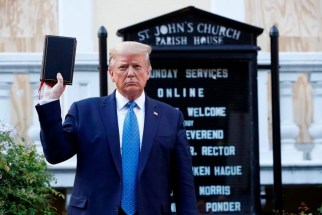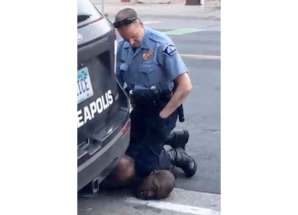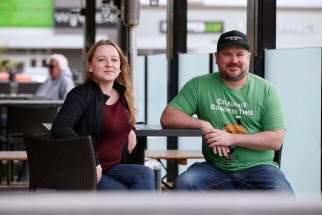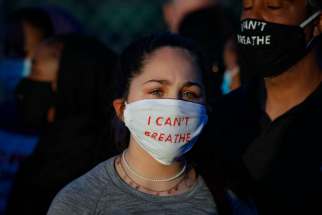U.S. rampage ignited by racism, poverty
Read this article for free:
or
Already have an account? Log in here »
To continue reading, please subscribe:
Monthly Digital Subscription
$0 for the first 4 weeks*
- Enjoy unlimited reading on winnipegfreepress.com
- Read the E-Edition, our digital replica newspaper
- Access News Break, our award-winning app
- Play interactive puzzles
*No charge for 4 weeks then price increases to the regular rate of $19.00 plus GST every four weeks. Offer available to new and qualified returning subscribers only. Cancel any time.
Monthly Digital Subscription
$4.75/week*
- Enjoy unlimited reading on winnipegfreepress.com
- Read the E-Edition, our digital replica newspaper
- Access News Break, our award-winning app
- Play interactive puzzles
*Billed as $19 plus GST every four weeks. Cancel any time.
To continue reading, please subscribe:
Add Free Press access to your Brandon Sun subscription for only an additional
$1 for the first 4 weeks*
*Your next subscription payment will increase by $1.00 and you will be charged $16.99 plus GST for four weeks. After four weeks, your payment will increase to $23.99 plus GST every four weeks.
Read unlimited articles for free today:
or
Already have an account? Log in here »
Hey there, time traveller!
This article was published 01/06/2020 (2022 days ago), so information in it may no longer be current.
Looters and violent extremists took advantage of the current wave of protests sweeping across United States cities. Their efforts to burn buildings and grab merchandise created the most striking pictures of the urban uprising. Governors imposed curfews and called out the National Guard on their account.
The looters and the extremists, however, were merely surfing on top of the wave. They did not cause it. The cause is the despair and anger of America’s urban poor, mainly people of colour, who were sickened once again a week ago when a Minneapolis police officer killed George Floyd, handcuffed and unarmed, by kneeling on his neck until he became unresponsive.
Similar atrocities keep happening in American cities, and sometimes in Canadian cities, year after year.
Racial injustice and economic inequality appear to be baked into the structure of American society.
Just lately, Ahmaud Arbery was shot and killed by a white ex-policeman and his son while jogging through a white suburb in Georgia. Prosecutors delayed three months before laying a charge.
Louisville police shot and killed Breonna Taylor in her home in March. In 2016, a St. Anthony, Minn. police officer shot and killed Philando Castile, an unarmed black man, during a traffic stop.
In 2014, a Ferguson, Mo., policeman shot and killed Michael Brown, an unarmed black man, touching off a countrywide wave of protests and riots.
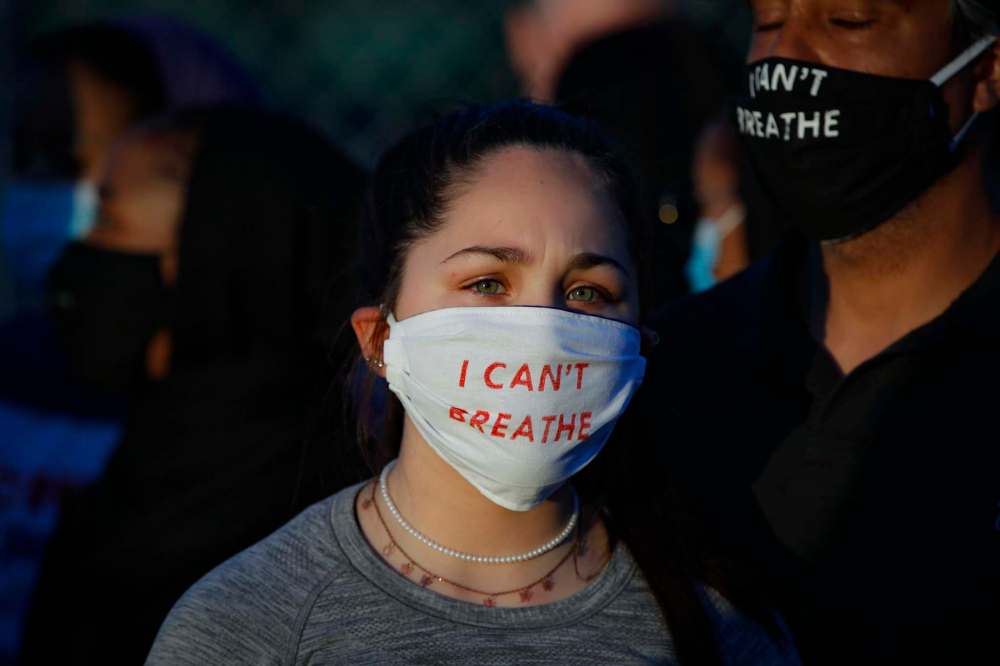
The coronavirus pandemic, raging in North America since March, has afflicted people of colour and the urban poor much more than it has the white middle class, whose living conditions are less crowded and whose health care is far better. The industrial shutdowns intended to slow the spread of COVID-19 have also hit the urban poor and people of colour especially hard in the closure of service jobs and low-wage industrial jobs that cannot be done from home.
Racial injustice and economic inequality appear to be baked into the structure of American society. The same conditions can be found in Canada in less pronounced forms.
The riots that have perturbed American cities for the last week call to mind the 1968 riots following the assassination of civil rights leader Dr. Martin Luther King. For all the economic and social progress that has been achieved in the intervening years, life in American cities looks pretty much the same for poor people and people of colour as it did half a century ago.
The election in 2008 of Barack Obama to be America’s first black president seemed, at the time, to herald a new beginning for U.S. race relations. Today, 12 years later, it’s high time for another new beginning.
There is nothing the National Guard can do to resolve racial injustice and economic inequality.
As long as mayors and governors count on the National Guard to deal with unrest, the problems will remain. There is nothing the National Guard can do to resolve racial injustice and economic inequality.
Police departments can, however, be told to improve their management by seeking accreditation with the Commission on Accreditation for Law Enforcement Agencies (CALEA), a Virginia-based organization that inspects police departments and teaches best practices. Winnipeg’s police service is accredited by the organization. That of Minneapolis, significantly, is not.
Reform of police practices does not by itself correct racial injustice or economic inequality, as the Indigenous people of Winnipeg can testify. It can, however, provide a structure in which police officers will not kneel on the necks of immobilized suspects until they become unresponsive.
That may seem a small thing in the face of centuries of racial hatred and entrenched poverty. It could, however, be a step in the right direction.










